Rosalind Wiseman's Blog, page 16
February 26, 2019
Meet the 2019 Cultures Advisory Council!
The Cultures Advisory Council is a select group of 18-24 year-olds from across the globe that help advise, think about and help spread our work. The Advisory Council serves as boots on the ground in different communities, thinking and working on issues that impact young adults’ lives – from social media and technology, identity, gender, social dynamics to politics.
The Advisory Council is a space to discuss issues that matter to young adults around the world and learn from each other.
Learn more about each of the members below!
Recent Posts
Meet the 2019 Cultures Advisory Council!
Bridging The Technology Gap Between Parents And Children
Why Boys Lie To You

Taylor is a first year student at Colorado State University studying Journalism and Media Communications. On any given weekend, you’d find Taylor playing her original music at local venues or spending time outdoors.
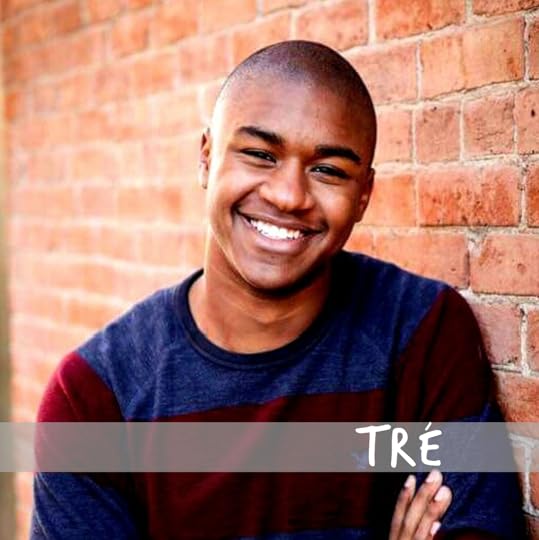
Tré is a junior at the University of Oregon. He loves political science, psychology, and social justice.
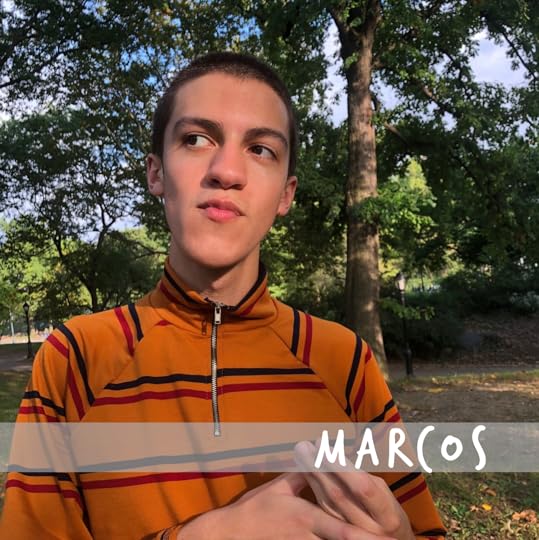
Marcos is an artist living in New York and studying at NYU. He is obsessed with Kate Bush and normalizing celebration of the true variety of Queer experiences that aren’t represented in media.

Keo is a Costco sample enthusiast studying engineering in Bozeman, MT.

Emily is a freshman at Fordham University, a strong proponent for intersectional feminism, and consumes too much dark chocolate.

David is a junior at Lafayette College studying international affairs and French with a passion for photography, storytelling, and literature.
The post Meet the 2019 Cultures Advisory Council! appeared first on Cultures of Dignity.
February 21, 2019
Bridging The Technology Gap Between Parents And Children
Why we are partnering with the parental awareness app, Jiminy
Doesn’t it seem funny that parents are the ones who give their child a phone but also constantly worry about all the potentially bad things the phone gives them access to?
It is funny, but it’s also our new normal. So is wondering, Who are they talking to? What are they looking at? Where are they right now? Why are they so obsessed with that game?
At Cultures of Dignity, when we advise parents and schools on young people’s use of social media and technology we are always balancing the importance of giving young people graduated freedoms and privileges as they mature. All while honoring young people’s privacy as a developmental reality, and recognizing that they are the subject matter experts of their lives.
This leads us to one of the most common questions parents ask us: How much supervision should a parent have on their child’s technology use? It’s a question we think about because technology isn’t going anywhere.
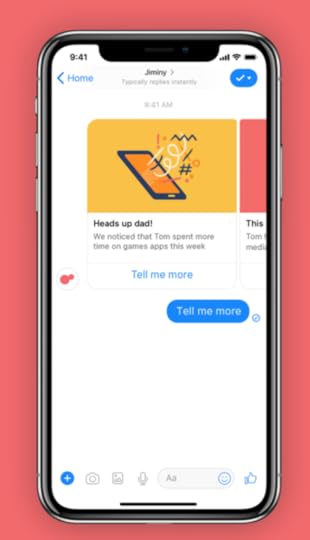
Jiminy notification
Several months ago we began working with Jiminy, a parental awareness app that respects young people’s privacy and gives parents some guidance on how to handle the tough conversations around media use. Jiminy uses technology to detect issues such as bullying, toxic phone usage, concerning content and drama in a child’s life by looking at how they use their phone and then notify the parent. These notifications come with tips on how to have courageous conversations about the child’s life.
Working with Jiminy was not a decision we made lightly. We would never work with a company that exploits parental anxiety and fear and doesn’t respect young people. Once we decided, we had our high school interns and student advisory council to review their material and give them specific feedback on where young people would push back.
Jiminy is creating a partnership between parent and child. The child agrees to have the app on their phone with the understanding that Jiminy will provide general information to their parent about their online interactions. Jiminy will never show the parent the specific messages, pictures, or websites.
This balance of child consent and giving parents general information serves several important purposes.
The child is informed and agrees to the app–meaning they don’t get resentful and even more motivated to hide their online life (this is one of the main reasons why Cultures of Dignity has not worked with other parenting apps)
Because parents get general information, they get the information they need without causing unnecessary anxiety that can further strain the parent/child relationship.
As our student advisory council member shared, “Being a teen is awkward and it’s embarrassing to reveal that you are thinking about things like porn or depression.”
We have worked with Jiminy to provide advice and sample scripts for parents when they get concerning information and are faced with the question of how do you talk to your child when you find something upsetting on their phone? How do you tackle issues of pornography, depression, addiction?
What exactly does Jiminy do?
Jiminy uses machine learning, natural language processing, and computer vision algorithms to look for patterns and anomalies in your child’s phone usage. Basically, Jiminy spots patterns in your child’s online interactions gives you general notifications about them. Jiminy will also alert you when they spot issues such as bullying, drama or loneliness, concerning content, and game addiction. They will also tell you the fun things like your child’s favorite music groups, interests, and the favorite emoji of the week. But throughout, is a commitment to work with parents to teach their children how to use technology in a way that keeps them safe and healthy.
Jiminy shares:
“We don’t block anything, and there are plenty of reasons for that: We believe in teaching children to govern themselves. We want kids to build self-control and a sense of what’s right. These are muscles that need to be trained, and that doesn’t happen when an app blocks things for you. We believe in dialogue. Situations such as interest in adult content are a great opportunity for parents to talk to their children about the birds and the bees, and healthy sexuality and positive body-image.”
So check it out. It’s currently available for children with Android phones, and parents need to register via Facebook messenger (a dedicated app is coming soon).
Tell us what you think. We’re all in this together. There’s way too much indignity and disrespect online. Every bit we do to to help adults and young people develop civil responsible online behavior, the healthier our children will be and the better mood we’re all going to be in.
Recent Posts
Bridging The Technology Gap Between Parents And Children
Why Boys Lie To You
VIDEO: How to Reclaim Dignity for Young People – Rosalind Wiseman
The post Bridging The Technology Gap Between Parents And Children appeared first on Cultures of Dignity.
February 13, 2019
Why Boys Lie To You
As a 9th-grade intern at Cultures of Dignity, I chose this excerpt from Masterminds & Wingmen because I think it’s important for parents to understand that when their kid lies it isn’t because they’re up to something. It could be for reasons as tasting a little freedom. If parents can begin to understand why we lie it can make communication and discipline much more productive.
Why Boys Lie To You
By Rosalind Wiseman
Reason 1: Self- Delusion
“I lie if my parents ask if I cleaned my room. I say I did and close my door and then leave for school. It’s because I am going to clean my room later.” — Jake, 13
Why do boys lie when they know how easy it is for you to check whether they’re telling the truth or not? I want to share with you something Anthony Wolf, Ph.D., explains about lying in these situations. He calls this a “lie of the future self.” The boy lies because he genuinely believes that in the future he’ll do the things he’s supposed to have already done. So when boys say, “I walked the dog,” “I cleaned my room,” or “I did my homework,” they don’t think they’re technically lying because they believe they’ll eventually do it.
Understanding this concept and therefore confirming that my children are confused about the time-space continuum has dramatically decreased the yelling I do at them. I still have to get after them to do their chores and homework, but I don’t think they’re dragging their heels on purpose to make me crazy.
Reason 2: Managing Parental Interference
Boys lie because they believe that parents overreact to problems, and they want to manage their problems themselves. Their best strategy is to keep you on a need- to- know basis by limiting and manipulating what you know. From schoolwork to after-school activities and athletics, boys will go to great lengths to keep parental interference to a minimum. From the parent’s perspective, this doesn’t make sense, because who better than a parent, the person who wants the best for the child, to help and give guidance? Parents can help only if they know about the problem. But the reality is that parents’ reactions often cause only more anxiety, frustration, and anger for the boy.
“When my parents find out I haven’t done well, they say, “This world is getting harder and harder. You better do well because it’s harder to get a good job.” Or “You’ll have a bad job,” or “You’ll have a sucky life.” So why wouldn’t I lie to them? I don’t want to hear it.” — Max, 15
“When I come home from school and I tell her I did my homework at school, her automatic reaction is, “No, you didn’t. You’re lying. Go do it.” Thanks, Mom.” — Anthony, 15
Reason 3: Protection
Boys lie to protect themselves or their friends from harm, or in some cases to protect others from the truth. Boys are often terrified of people (including you) finding out their true self or of the judgments and assumptions you’ll make.
“I lied to my parents about my friend. He’s a really good kid, but he’s always getting into trouble. His home situation is pretty bad, like his dad drinks and he’s never home, so I know my parents wouldn’t want me going over there, but we just hang out in his room and it’s fine.” — Ryan, 13
“I had to lie about me being gay to my parents. It was a hard time for me, but now I don’t lie to them anymore. I had to lie about myself not being gay because I thought my parents would hate me for that, but I told them and I feel great about it. When guys or girls are gay, they have to lie about their true feelings and who they are because they think that no one will accept them for who they are.” — Ian, 17

Photo by Ant Rozetsky on Unsplash
Reason 4: Freedom and Independence
“I tell my mom I’m going to hang out with some friends— which technically I’m doing. I’m just not telling her exactly what I’m doing because am I really going to tell her that I’m hanging out with people she doesn’t trust, getting into a car with way more than five people in it, or possibly drinking? I don’t know for sure that I’m doing it anyway.” — Kyle, 16
Boys lie because they want the freedom to go where they want to go and believe they can assess danger and risk more accurately than their parents. For example, younger boys believe they’re better at assessing the danger of going up on the roof of their house to shoot water from high- powered Super Soakers at passing cars (“Mom, it’s fine, no one is going to get hurt”) because they haven’t seen someone get into an accident yet.
Your belief that they could fall off the roof or cause someone to get into an accident is needless worrying to them, especially since you don’t know how good they are at climbing on the roof or what a good shot they are because their plan isn’t to actually shoot at the car, just near the car. Likewise, using similar logic, older boys who drive or have friends who drive know that parents don’t want seven kids in a car piled onto each other’s laps. Of course, it’s against the law in many states too. But boys drive with too many people or get into crammed cars because they believe they know who’s a good driver and who isn’t and because they want the independence that comes with not relying on their parents for rides. Therefore, they believe they’re in a better position to gauge the safety of getting into a particular person’s car; parents don’t understand the specific situation, so their perspective is unreasonable. What’s scary about boys lying for freedom is that often they rationalize lying to you because they don’t want you to worry.
“Guys will lie in order to keep their parents from worrying. Some may see this as a positive aspect of lying because the guy is doing it for the benefit of his parents”. — Bill, 15
“When it comes to lying, I don’t like lying to my mom. So if I do something bad and don’t want her to find out, I’ll try to avoid her or the topic. But sometimes I do lie just so she won’t worry. I also lie to my mom when I have people in my house and she’s not home. And I lie to my mom about relationships sometimes”. — Vince, 16
Of course, the other reason why boys lie in these situations is that they know the possible consequences of their actions but believe they’ll never encounter them. If they’re thinking about their past when it comes to lying, they may be remembering the times they didn’t get caught and got away with lying rather than the times they did get caught and were punished. Teens think they’re invincible— or so adults love to say.
Undoubtedly this is true, but before we move on, look in the mirror. Do you talk on your phone or text while driving? Have you ever drunk a couple of beers or glasses of wine and driven home, even when your kids were in the car with you? I’m just saying that young people aren’t the only ones who are in denial about consequences hitting them upside the head.
Reason 5: Cover- up
“After a party, my mom will question me about what happened, who did what, or who was smoking or drinking. So I tell her, “If you don’t believe me, ask Drew” (one of my friends I know she likes). When I do that, I know Drew will back whatever I’m saying.” — Jordan, 15
“You have to coordinate with friends. But you only do that with guys who are really close to you. They’re sticking their neck out for you. They’re going to go down with you.” — Will, 16
What’s really important to keep in mind here is that most boys differentiate between lying and deceiving. Lying to you is clearly unethical and punishable. Deceiving is more ethically ambiguous because it relies on you making assumptions for which he’s not necessarily responsible.
This excerpt is adapted from Chapter 6: Lying and Reconnaissance in Masterminds & Wingmen.
Recent Posts
Why Boys Lie To You
VIDEO: How to Reclaim Dignity for Young People – Rosalind Wiseman
Response to Our Oped About Covington High School
The post Why Boys Lie To You appeared first on Cultures of Dignity.
February 4, 2019
VIDEO: How to Reclaim Dignity for Young People – Rosalind Wiseman
“Respect your elders.” It’s an adage woven into our collective cultures.
But this generation of young people sees ‘respect’ very differently and isn’t accustomed to hearing the word ‘dignity’. These words matter. They are the foundation for building communities where children can thrive.
At the same time, young people are searching for ways to connect with adults who are competent, courageous, and ethical.
Courageous conversations are vital if we truly want to create communities of dignity for ourselves and our children. Together, we can reclaim dignity.
Listen to Rosalind Wiseman speak at the RSA to find out how to get started.
Join the conversation on Twitter with #RSAdignity
Tweet #RSAdignity
RSA Dignity
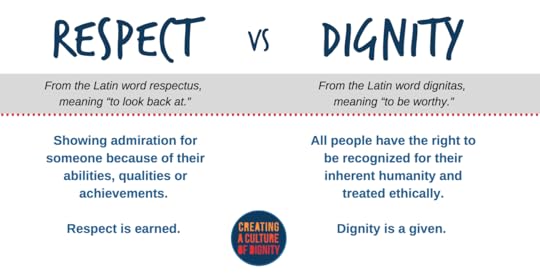
If you have any questions or comments for Rosalind, please email curious@culturesofdignity.com
Recent Posts
VIDEO: How to Reclaim Dignity for Young People – Rosalind Wiseman
Response to Our Oped About Covington High School
Webinar: Confronting Bias in the Classroom with Rosalind Wiseman
The post VIDEO: How to Reclaim Dignity for Young People – Rosalind Wiseman appeared first on Cultures of Dignity.
January 23, 2019
Response to Our Oped About Covington High School
We, at Cultures of Dignity, want to address the op-ed our co-founder, Rosalind Wiseman, published in the Huffington Post on Tuesday, January 22nd titled To The Teachers And Parents Of Covington Catholic High School. As Rosalind wrote in the op-ed, we believe this is a confluence of events that made dignified reflection impossible. We don’t see this incident as the fault of any one group.
The article challenged all of us to stop attacking each other and treat each other with dignity. We have received a lot of the “proof and videos” from all angles about who was in the right.
We are not going to wade into this abyss. We are reiterating what we believe.
Dignity is recognizing the worth and perspective of all people.
Good manners and civility are important.
Freedom to express yourself is important but so is being considerate about the impact of your behavior on others. That’s treating people with dignity and having good manners.
The event on the National Mall gave us an example to describe our values in a concrete manner:
Wearing a Make America Great Again hat for some people in this country is a point of pride and embodies certain values. For others, it is a symbol they fear and values that they don’t agree with. To regain civility in this country we must be considerate of this reality when we are in public.
School sanctioned field trips are hard under the best of circumstances; excitement, group dynamics, new experiences, and adolescence, are only a few components to manage. In addition, schools tell students that when they are in public they are representing the school. This is why schools have rules about appearance and behavior before they send the kids out on these trips.
To have school chaperones either not appreciate or know these dynamics and then send their students to the National Mall, especially during protests, sets up the students for altercations. That was why the focus of our op-ed was about the responsibility of the supervising Covington adults.
As people who work in schools and respect the hard work of running a school and educating children, that op-ed was a plea to not listen to the vitriol surrounding them and instead “focus on their boys.” We called on using the values and mission of a Catholic school to guide the members of the community through a process of repair.
If you would like to continue the conversation with us, we welcome the opportunity. Our request is that you do so with dignity. We obviously can’t control how you respond to us but we really are interested in hearing different viewpoints and working together to build stronger communities.
In Dignity,
Cultures of Dignity
Recent Posts
Response to Our Oped About Covington High School
Webinar: Confronting Bias in the Classroom with Rosalind Wiseman
How to Survive the Holidays with Dignity
The post Response to Our Oped About Covington High School appeared first on Cultures of Dignity.
January 17, 2019
Webinar: Confronting Bias in the Classroom with Rosalind Wiseman
In this webinar, Rosalind addresses:
bullying vs drama
teaching respect and dignity
current research on race bias
how to establish guidelines in the classroom
teaching the conflict management strategy, SEAL
addressing biased comments in the moment
how to talk to the target
how to talk to the perpetrator
Watch below!
Recent Posts
Webinar: Confronting Bias in the Classroom with Rosalind Wiseman
How to Survive the Holidays with Dignity
Making it Meaningful: Interrupting Bias in the Classroom
The post Webinar: Confronting Bias in the Classroom with Rosalind Wiseman appeared first on Cultures of Dignity.
Meet Macy! Interview with Spring Intern
Macy is a high school junior from Boulder, CO. She enjoys listening to music and fighting the patriarchy and is interning with Cultures of Dignity.
Meet Cultures of Dignity’s Newest Intern

Cultures of Dignity: Tell us a little about yourself!
Macy: I’m 17 years old and halfway through my junior year at Boulder High School. I grew up in New York City and moved to Boulder when I was 14, and I absolutely love it. I love to sing, write, do art, and spend time with my friends and family.
Cultures of Dignity: Why are you working with Cultures of Dignity this spring?
Macy: I read about Cultures of Dignity online and was really fascinated with their overall mission, as I believe that everyone should be afforded dignity: no matter what shape, size, color, or religion a person is, they are still a person just like anyone else and deserve dignity. I would like to help preserve that dignity for those who feel they may not be worthy of it.
Cultures of Dignity: If you could have any superpower what would it be?
Macy: If I could have any superpower I would choose selective mindreading, meaning that I can read people’s minds whenever I want, but only if I want to. This way I can pick and choose and I don’t have to listen to all the random stuff that goes through a person’s head everyday, only the more important stuff.
Cultures of Dignity: What projects will you be working on with CoD?
Macy: While interning for Cultures of Dignity, I will be working on event marketing, article writing and editing, and helping to create lesson plans.
Cultures of Dignity: What is an issue you see in schools you want to fix?
Macy: I see an issue with social culture in schools because it is not very inviting to anyone who may not fit social norms. I would like to see schools take action to create a more inclusive and respectful environment by being active disciplinaries on bullies and strong advocates for targets. In order for this to happen, schools and teachers need to facilitate discussions about tougher topics such as bullying, drug abuse, and social media.
Recent Posts
VIDEO: How to Reclaim Dignity for Young People – Rosalind Wiseman
Response to Our Oped About Covington High School
Webinar: Confronting Bias in the Classroom with Rosalind Wiseman
Learn about how we work with young people:
Student VoiceStudent Voice
The post Meet Macy! Interview with Spring Intern appeared first on Cultures of Dignity.
December 21, 2018
How to Survive the Holidays with Dignity
The holidays are hard. Here are realistic ways to get through them while keeping your dignity and sanity intact.
1. Be nice to your fellow travelers in the TSA line.
2. Be really nice to the people who work for the airlines.
3. Actually be nice to the people who are in any service industry.
4. Forget about posting the perfect family photo.
5. Be patient with the family member who works your nerves the most.
6. If your children aren’t being kind to others at a holiday party, remind them that they don’t have to like the person but they can’t make snide comments. They must treat them with worth.
7. If you are anxious about going to holiday events, take a bubble bath first.
8. Don’t beat yourself up if you haven’t sent out your holiday cards yet. There’s no time limit on saying hello.
9. If you read someone’s holiday card and it looks like they have “the perfect life”, just remember how much pressure that person is under to look like they have “the perfect life”.
10. If someone says something offensive, remember you aren’t going to die because you’re offended. But do ask them with as much genuine curiosity as you can, “Help me understand why you just said X (really irritating obnoxious comment).”
11. You don’t have to respect the behavior of the person sitting next to you at the dinner table, but you do have to treat them with dignity.
This originally appeared in our newsletter: Communiquette: A periodic tutorial on the basics of communicating respectfully and honoring each other’s dignity.
Recent Posts
How to Survive the Holidays with Dignity
Making it Meaningful: Interrupting Bias in the Classroom
Why I Deleted Social Media
The post How to Survive the Holidays with Dignity appeared first on Cultures of Dignity.
December 19, 2018
Making it Meaningful: Interrupting Bias in the Classroom
By Rosalind Wiseman
What do you do if you if think you hear one of your students make a racist, homophobic or sexist remark? Or more difficult, what if you hear it or think you hear it, but you’re not absolutely sure who said it?
This is one of those common yet incredibly difficult moments in a classroom that matter: Handle it wrong and your authority in the class is compromised; handle it right and you role model how an adult can right a wrong in a profoundly meaningful way for children.
First, let’s look at how well meaning teachers can contribute to the problem.
“That’s enough!” is a standard response from a teacher to a group of students when they’re being loud and need to settle down. But it’s also a go-to response when a student is bullying another child with a racist, sexist or homophobic comment. Take a step back and listen to the message communicated in that moment from the teacher—it’s a tacit approval or acceptance of what’s happening. Said another way, there should never be an amount of cruelty or bigotry that’s acceptable.
Instead, at the minimum, as soon as a teacher hears a derogatory comment, they should say, “Using that word(s) to put someone down is unacceptable.” At that point, they can go back to teaching their class or they can make the decision to spend a few more minutes addressing the remark with some depth.
When students push back, which happens all the time, there are two usual reactions:
“They don’t care! I was just joking.” Again, well meaning teachers often turn to the target and ask them if this is true. In that moment you have lost the teaching opportunity. The target will tell you they don’t care because they have to agree with their more powerful peer. Instead, teachers need to say strongly, “Saying X to put someone down is unacceptable. I don’t want it in my classroom and I’m not going to get into a discussion with you about if you were joking or not because it’s easy to say ‘just joking’ as an excuse to get away with this kind of comment.” If you have time, use the opportunity to discuss how to challenge biased language.
“I didn’t say it!” is a classic response and very tricky to handle well. Here’s why. It can be hard to be sure that you identified the student correctly. Out of a basic sense of fairness, you don’t want to wrongfully accuse anyone and if you get it wrong it’s likely that the students know who really did it but won’t tell you. Some teachers respond by saying something like, “If the person who said it doesn’t come forward, the whole class will be punished.” What usually happens is that no one speaks. Loyalty of silence reigns and the teacher is left fuming. Not only did a student get away with being cruel to another student but the teacher demonstrates that they are unable to handle the situation effectively. It reinforces the power dynamics between the students.
All while the actual issue gets lost. Communication shuts down. And really, finding out the “culprit” is not really the point. The point is that the comment was made and it’s important to help students understand why it’s wrong, no matter who said it.
Here are some suggestions for doing it differently.
Acknowledge that the point isn’t who said it but that it was said. Reaffirm with the quick values statement, mentioned above, about not using those words to put someone down. If any student argues with you, let them finish and then say, “You and I have a disagreement about this. I can’t allow you or any of my students to put people down. If you want to speak to me about this further, you can schedule an appointment to talk with me, but right now those comments need to stop. Are we clear?”
To address the comment in a meaningful way and to make it a teachable moment, spend a few minutes (or more, if possible) talking about these kinds of comments, why they are wrong and how we can address them in the classroom or school.
If you have only a few minutes, describe the different types of teasing. Explain that there is “bonding” teasing where you feel liked and connected to the person teasing you. “Annoying” teasing is when the person is insensitive to your reactions. And then there is malicious teasing when the teaser repeatedly goes after you specifically around perceived insecurities to humiliate you in public. As the teacher, it is critical to remind the students that everyone can be on the giving or receiving end of all of these kinds of teasing and malicious teasing can lead to or be considered bullying.
If you have a longer period of time to have this conversation, start off by describing the different types of teasing. Then, expand the conversation to include why it’s so difficult for the targets to speak out, why targets often laugh it off and how that destroys the target’s credibility later if they ever want to come forward to admit how upset they are. This discussion can easily connect to any history or social studies curriculum that teaches about the nature of bystanding and the importance of protecting people’s rights to come forward to voice a politically or socially unpopular opinion. You can also elicit from students why they think these comments are so pervasive and what they think should be done about it.
Unfortunately, racist, sexist and homophobic comments are prevalent in middle and high schools across the United States. However, teachers have a powerful opportunity to turn those remarks into opportunities for sharing, learning and change.
This article originally appeared on Rosalind’s Classroom Conversations on ADL.
Recent Posts
Making it Meaningful: Interrupting Bias in the Classroom
Why I Deleted Social Media
Why Young People Are Voting
The post Making it Meaningful: Interrupting Bias in the Classroom appeared first on Cultures of Dignity.
November 19, 2018
Why I Deleted Social Media
Kate is a senior in high school from Boulder, Colorado. She is working as a writing and editing intern this fall.
Below are her thoughts on what happened when she deleted social media for a month.
Why I Deleted Social Media
By Kate Gallop
Clicking the small red delete button on the top corner of the Instagram and Snapchat apps felt wrong. I never thought of myself as someone who was glued to their phone. I put it down at lunch, around friends, and during class. I even went without service for a week each summer. So, why was it this hard to click the button that deleted social media?
I was embarrassed to admit that two apps had such an impact on me. I always brushed off statistics I heard about teens spending an average of 9 hours on their phone each day, and opening their phones 157 times thinking, “that’s not me.”
I didn’t realize how wrong I was until I began Offline October.
Offline October was created by high schoolers in Littleton, Colorado who wanted to prevent suicide by fostering face-to-face connection. They believe that social media plays a negative role teenagers lives, and removing social media will allow people to connect and build stronger friendships. After a few announcements to the high school about Offline October, most of my friends signed the pledge, and people across the other grades did too. It was easier to stay off of social media when the people around me were doing the same.
“I find that when I am bored, social media is something that I will turn to and mindlessly scroll through, wasting away time. Offline October was an amazing opportunity because I was able to get off of social media and spend time interacting with those around me instead.”~ Sophie, 18.
I’d be lying if I said it wasn’t hard to go off of social media. It was how I imagine quitting any addiction would be. I found myself not knowing what to do with my hands when I was waiting in line or an awkward silence came up in conversation. I initially opened my phone as much as I previously had, but my fingers hovered above the familiar screen, not quite sure what to do next. I even cheated once, it was after the first week and I went on instagram.com, logged onto my Instagram, scrolled for a minute, then asked myself what was I doing and exited out of it.
It was worse at home when I wasn’t surrounded by people. I felt isolated from everyone I would’ve usually seen or talked with on social media. Distracting myself with homework helped, but I still had a distinct fear that I was missing out on something. Although many people decided to take part in offline October, the majority was still on social media and talked about things people had posted at school. Over the weekend, I felt out of the loop because I didn’t know who was hanging out like I normally did.
It’s hard to pinpoint the exact day my attitude changed because it was a gradual shift. I stopped taking my phone everywhere with me. I started asking people I usually didn’t talk to about themselves, instead of seeing their curated content online and assuming nothing more was happening. At first, I didn’t tie any of that with Offline October. All I knew was that I was happier.
“After you get over the hump you don’t miss it. It feels good to know that social media is something I can thrive without.” ~ Emily 18
Without Instagram, I stopped judging others and myself as harshly. It was never a conscious thing. I recognized that as I would absentmindedly scroll through photos of people looking gorgeous, skinny and happy, strong bursts of jealousy and self-doubt would creep up. These feelings, that I rarely experienced when being around someone in person, were magnified online. I viewed everyone else’s lives as seemingly perfect because that’s what they portrayed.
In the prime of my social media usage, I found myself Snapchatting people less on the days I didn’t wear makeup or I was breaking out. Sending others constant pictures of my face made me insecure, and I found myself focusing less on how I looked when I didn’t have Snapchat as a constant mirror.
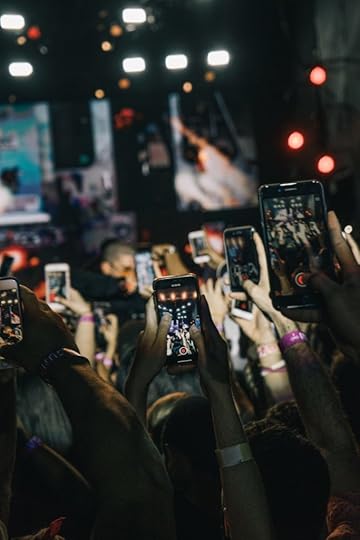
Image by Gian Cescon, Unsplash
Of course, I didn’t notice any of these things in the moment. I only knew that the month of October held some of the fondest memories I’d had in a long time. My friends and I carved pumpkins, watched scary movies, went on hikes, and roasted marshmallows together. We did something fun almost every weekend, and I became close to people I usually didn’t try to connect with. It’s only after further contemplation that I understand how incredibly different the memories would’ve been if everyone was distracted by their phones.
By the time November 1st came around, I wasn’t looking forward to redownloading social media, but part of me was curious if it would seem different. Another smaller part still itched to see what people had posted, so I redownloaded social media.
Scrolling through Instagram and opening Snapchats, I had a new lens. It didn’t matter to me anymore. I saw people traveling to exotic places, looking amazing in their bathing suits, and laughing with friends at parties, but I finally saw it all as it is: fake.
“I don’t miss social media. I redownloaded it on the first day of November and then I deleted it again. I don’t think it adds anything to my life.” ~ Heather, 17
I scrolled through my own Instagram, thinking of the real story behind each photo. Some show me smiling and ‘happy’ with a group of old friends that I never laughed with aside from these forced moments captured by cameras. We used to drive up to the top of a mountain near our houses, not to enjoy the incredible view, but to take photos in front of it. I remember how long it took me to pick out and edit each picture, the extent to which I drafted clever captions, and checking my phone constantly after posting, to see how many likes and comments it got. It’s confusing how much two apps could influence my mental health.
My relationships with friends were strengthened over the course of Offline October because we were able to spend real time with each other, undistracted by notifications on our phones. I interact with the apps more consciously now because I know how they can make me feel. I have realized I don’t want to be impacted in the same way again.
If you have any questions for Kate feel free to email curious@culturesofdignity.com
Recent Posts
Why I Deleted Social Media
Why Young People Are Voting
How We Can Do Better In The Aftermath Of Hate
The post Why I Deleted Social Media appeared first on Cultures of Dignity.



